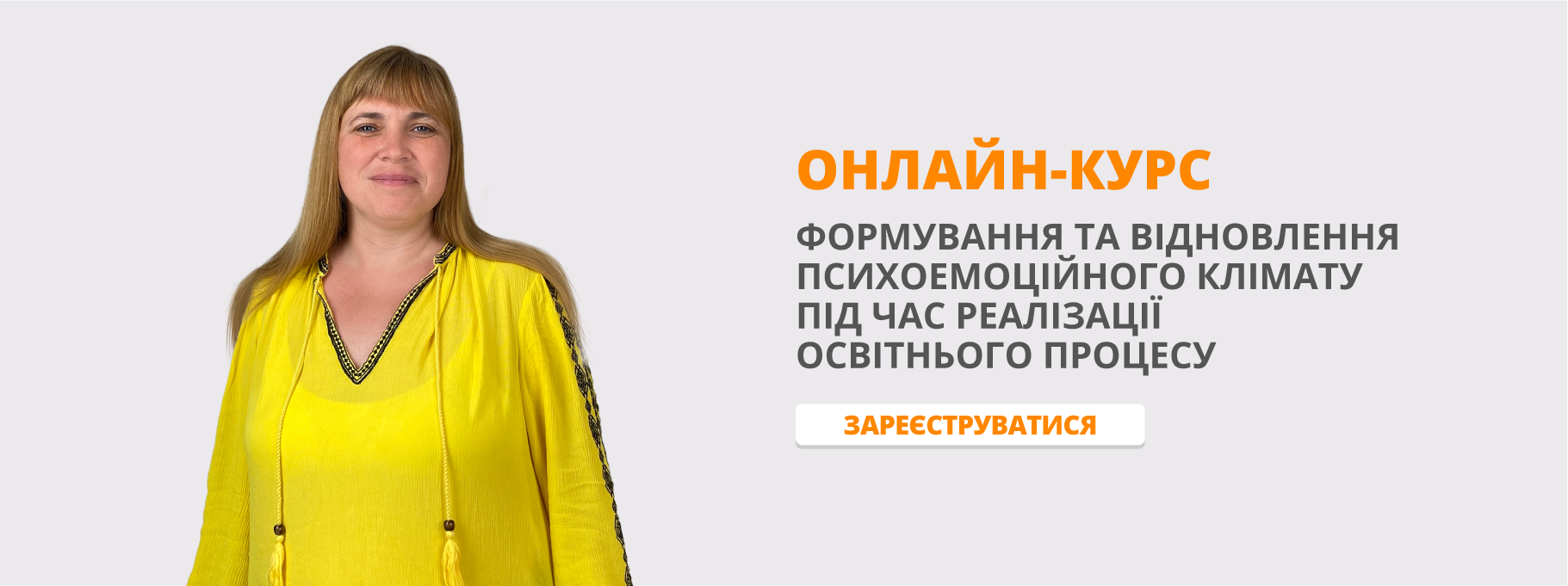Урок "Конспект уроку з англійської мови для 6-го класу на тему "Travelling"
Конспект уроку з англійської мови у 6 класі "Travelling" за підручником "Solutions Elementary" видавництва "Oxford University Press". У конспекті використовуються матеріали з автентичних джерел, як можна використовувати для роботи на уроках для розвитку мовленєвих навиків учнів.
Бліщ Наталія Григорівна, Золочівська ЗОШ І-ІІІ ступенів №4 Львівської області
6th grade
Lesson: Travelling. Buying a train ticket.
Objectives:
Practical: to activate the topic-related lexics; to develop student’s skills in speaking, reading, listening and writing; to practice listening and speaking in dialogues and monologues
Educative: to teach students to work in pairs and in groups
Developing: to develop students’ skills in listening and speaking, their ability to express their thoughts logically
Equipment: pictures, handouts; worksheets, MP3 player, CDs
Procedure
I. Greeting
Teacher: Good morning, everybody!
I’m happy to see you and your happy smiling faces in our class. Today is Thursday, the 14th of April and the topic of our lesson today is “Travelling. Buying a train ticket”.
By the end of the lesson you will be able
• to recognize, understand and use the words, word-combinations when reading the text or listen to the conversation;
• to exchange information on the basis of the text and a given situation.
II. Warm-up. Proverbs. Match the proverb and its corresponding meaning
• He that travels far knows much (English)
• Poor man’s luggage is always light (Norwegian)
• Every departure has an arrival (Ukrainian)
• Бідному зібратися, тільки підперезатися
• Усе добре, що на добре виходить (Нема зла, щоб не вийшло на добре)
• Хто багато подорожує – багато знає
III. Vocabulary activity: Matching game and grouping (take a ticket). Match the pictures with transport words
On a small papers of different colours the name of transport is written car train ferry : Students have to match pictures with the name of transport. Every student who matches the picture take a ticket. (They are grouped by colours) (Four tables – four groups)
Mind-up. Brainstorming.
What things do you associate with the word “Travelling”? Let’s draw the man to the topic. Think over in groups, each group has to write two associations:

Game “Make a sentence”
And now you have to make up sentences using the mind map
1. Travelling means to see beautiful places.
2. Travelling means to go on holidays.
3. People travel to visit friends and relatives.
4. On holidays people go abroad.
5. In summer people go to the seaside.
6. Before travelling we have to pack our things.
7. I like to go hiking.
8. I love meeting new people.
Work in groups
Four groups have different tasks:
1. Put the transport into these groups
Land Air Sea
bike plane ferry
2. Look at the adjectives. Put them into pairs with opposite meaning.
cheap comfortable convenient dangerous expensive fast inconvenient safe slow uncomfortable
3. Match the transport words with the same meaning
cycle, drive, catch a bus (train, taxi…), walk, drive somebody to
go by bike
go by car
go by bus
go on foot
give somebody a lift
4. Scrambled words
Write the transport words:
1. aintr – train
2. sub
3. own
4. obat
5. laple
6. xati
7. kibe
8. pish
9. eepj
10. cileporhet
IV. Reading
Travelling by train in Britain
One of the first things a foreigner notices about British railways is the platform. They are higher than in the most parts in the world. The platform is almost on the level with the floor of the carriages. You don’t, therefore, have to climb up into a railway carriage in Britain. This makes it a little easier to get in and out of the carriage with your luggage.
The trains that go to and from London are very crowded at the times when people are travelling to work, since about a million people travel to London to work each day. There are cheap tickets after a certain time of the day, usually about 9.30 when everyone has gone to work. These are called cheap day return tickets. It is often nearly fifty per cent cheaper to travel to London after 9.30 than before this time.
On many fast trains to London there is a dining-car in which you can buy a lunch, dinner or coffee. On others there is a buffet at which it is possible to buy snacks and drinks. Sometimes a waiter from the dining-car brings round cups of coffee to the passengers.
There are only two classes in Britain – first and second. A first-class ticket costs 50% more than a second-class ticket. On long journeys, there is a ticket inspector, who visits every passenger to see if he has the right ticket and is not traveling in the wrong class.
In England train passengers seldom converse with their fellow-travelers even on a long journey – this is more a national custom than a matter of etiquette. When the passenger reaches the end of his journey and leaves the train, he has to give his ticket to the ticket collector at the exit before he can leave the station. If he has a luggage and wants someone to carry it for him to a waiting car or a taxi, he must ask to a porter. The porter does not make a charge for this service, but he expects a tip.
Activity 1. Match the words with their Ukrainian equivalents.
platforms багаж
carriage платформи
luggage вагон
return ticket вагон-ресторан
dining-car пасажир
fellow-traveler чайові
a porter попутник
a tip квиток в обидві сторони
a passenger носильник
cheap tickets дешеві квитки
Activity 2. Say if the following sentences are true or false.
1. In Britain the platforms are higher than in the most parts in the world.
2. About a million people travel to London to work each day.
3. There are cheap tickets after a certain time of the day, usually about 9.30 when everyone has gone to work.
4. A first-class ticket costs 50% less than a second class ticket.
5. In England train passengers often converse with their fellow-travelers.
V. Listening: Buying a train ticket
1. Listen and write the times.
Transcript
a 11:48 c 20:39 e 21:14 g 08:55
b 09:30 d 05:00 f 18:18 h 09:00
a __ __ . __ __ c __ __ . __ __ e __ __ . __ __ g __ __ . __ __
b __ __ . __ __ d __ __ . __ __ f __ __ . __ __ h __ __ . __ __
2. Write the train times in words.
06: 45 _____________________
15:00 _____________________
10:55 _____________________
19:08 _____________________
23:15 _____________________
07:39 _____________________
08:00 _____________________
12:33 _____________________
3. Listen to the dialogue. Choose the correct answers
Transcript
Clerk. Next please.
Fran. I’d like a ticket to London, please.
Clerk. Single or return?
Fran. Single, please.
Clerk. Have you got a railcard?
Fran. No, I haven’t.
Clerk. That’s £21, please.
Fran. Here you are.
Clerk. Thank you. And £4 change.
Fran. When the next train?
Clerk. There’s one in ten minutes, at 11:42.
Fran. Which platform is it?
Clerk. Number four.
Fran. Is it a direct train, or do I have to change?
Clerk. It’s direct.
Fran. Thanks.
Clerk. Thank you. Have a good journey.
The girl wants a single / return ticket.
She has got / hasn’t got a railcard.
The ticket costs £21 / £25.
The next train is at 10:42 / 11:42.
She has to / doesn’t have to charge
4. Put the words in the correct order to make sentences and questions.
a does / which / leave / it / from? / platform
___________________________________________
b a / is / direct / it / train?
___________________________________________
c the / 15:26 / train / is / next / at
___________________________________________
d to / return ticket / I’d / please / London, / like / a
___________________________________________
e you / when / coming / back? / are
___________________________________________
f please / £93, / that’s
___________________________________________
5. Complete the dialogue with lines a-f from exercise 4. Then listen and check.
Clerk. Next please
Chris. 1___
Clerk. 2___
Chris. Next Monday.
Clerk. 3___
Chris. Here you are.
Clerk. Thank you. And £7 change.
Chris. 4___
Clerk. Number three. 5___
Chris. 6___
Clerk. No, you have to change at Exeter.
Transcript
Clerk. Next please.
Chris. I’d like a return ticket to London, please.
Clerk. When are you coming back?
Chris. Next Monday.
Clerk. That’s £93, please.
Chris. Here you are.
Clerk. Thank you. And £7 change.
Chris. Which platform does it leave from?
Clerk. Number 3. The next train is at 15:26
Chris. Is it a direct train?
Clerk. No, you have to change at Exeter.
VI. Work in groups.
1. Write and act out dialogues:
group 1. 17:44 GLASGOW DIRECT PLATFORM 6
group 2. 14:25 MANCHESTER DIRECT PLATFORM 7
group 3. 11:35 LIVERPOOL DIRECT PLATFORM 3
group 4. 15:30 BRISTOL HAVE TO CHANGE AT SWINDON, PLATFORM 5
2. Write a dialogue. Use the information in the departure board.
Clerk _____________________________________________
Louise Hello. I’d like a return ticket to Glasgow, please.
Clerk ____________________________________________?
Louise Tomorrow.
Clerk That’s £47, please.
Louise _____________________________________________
Clerk ________________ . And £3 change.
Louise ____________________________________________?
Clerk _____________________________________________
Louise ____________________________________________?
Clerk _____________________________________________
VII. Speaking. Act out dialogues.
VIII. Summarizing.
IX. Hometask.


про публікацію авторської розробки
Додати розробку
